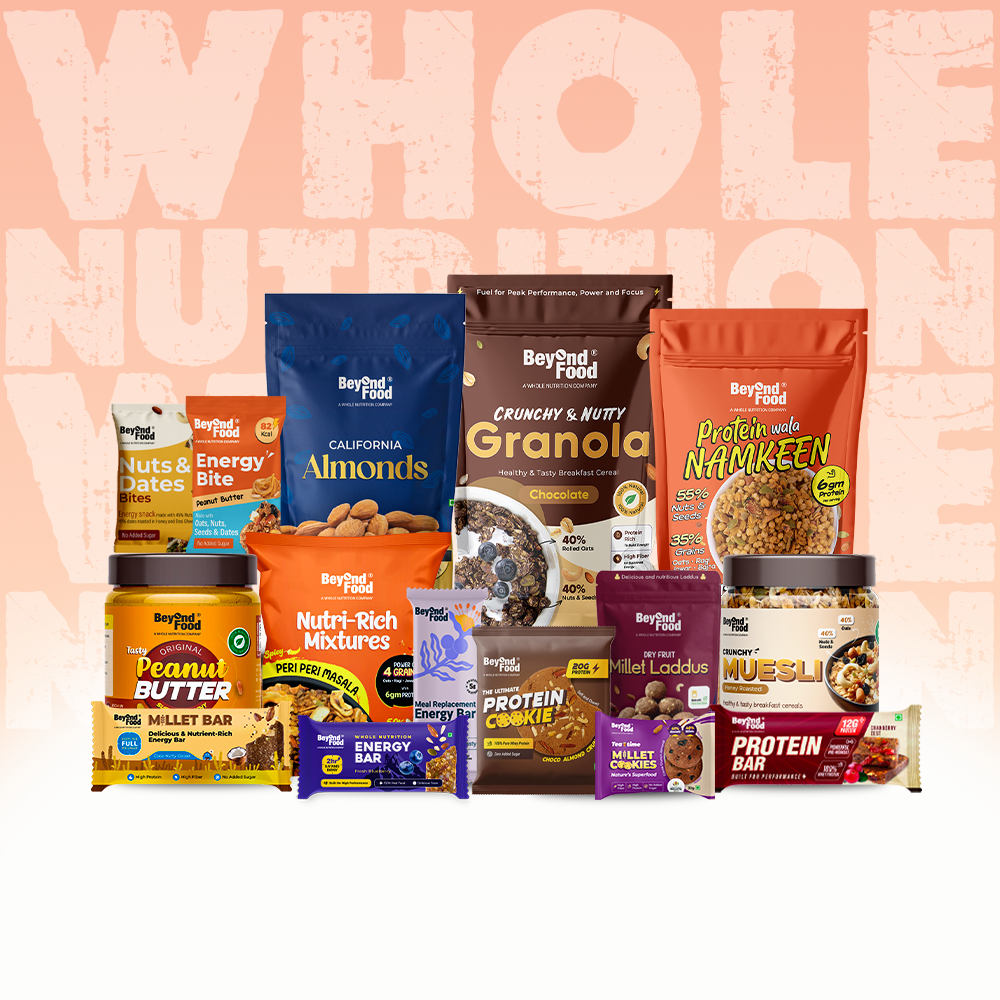For lots of people these days, easy-to-prepare food is the preferred option. A comparison will show that frozen dinners, snacks, sugary cereals, and instant noodles are what our shelves are mostly filled with and are often highlighted for daily meals. Yet, it also means more concerns about health. Since processed foods are often risky, it's now essential to eat smarter and adopt a basic, whole-food approach. This guide is designed to help you act quickly if you are ready to eliminate processed foods from your diet.
Why Processed Foods Are a Problem?
-
Your first step in research should be to understand the problem you are researching. Processed foods have numerous serious and frightening consequences.
-
Eating processed foods high in sodium and refined sugars can lead to weight gain, increased blood pressure, and cardiovascular problems.
-
Things such as preservatives, fake flavors and dyes could make children have allergies or disorder symptoms.
-
Since much of the goodness is stripped out in processed food, the calories from it are not healthy for you.
Many times, choosing ultra-processed foods increases your risk for diabetes, heart problems and certain cancers.
Being aware of these health problems might lead people to eat healthier foods.
Step 1: Educate Yourself
Check the label when selecting any item. It's best to avoid meals with ingredients that are new to you. Research partially hydrogenated oils, high-fructose corn syrup and MSG, then make your meal decisions accordingly. If you find additives or preservatives in a food, it is probably a processed food.
Step 2: Clean Out Your Pantry
Go through your kitchen and remove highly processed items. This includes:
-
Sugary cereals
-
Instant noodles
-
Packaged snacks
-
Soft drinks
-
Frozen meals with long ingredient lists
Replacing them with healthier alternatives will reduce temptation and set the stage for success.
Step 3: Make Gradual Changes
Some may find quitting all at once practical, but for most, it's better to change things gradually. First, change one processed product for a healthier version.
-
Instead of choosing a sugary type of cereal, opt for an oatmeal or smoothie bowl.
-
Instead of white bread, use both whole grain and sprouted options.
-
Pick fresh fruit instead of desserts that come in a package.
Over time, these small changes will become second nature.
Step 4: Embrace a Whole Food Diet
-
Most of your meals will remain natural if you eat whole foods.
-
Fresh fruits and vegetables should be a part of your diet every single day.
-
Brown rice, quinoa and oats are all good for your health.
-
Eating low-fat protein means including beans, lentils, fish and chicken in your diet.
-
By eating nuts, seeds, and olive oil, you can obtain essential healthy fats.
Whole foods help your body get the necessary nutrients to function correctly, process meals properly, and protect against disease.
Step 5: Follow a Clean Eating Plan
-
With clean eating, you choose your food rather than adhering to rigid dietary rules. We will go over some main rules now:
-
Watch your diet and report any discomfort you notice from the food you eat.
-
At home, you can't help but notice what's cooking and how many dishes are being prepared.
-
Switching out sugary drinks for water can make your body healthier.
Setting your meals for the upcoming week means you're less likely to eat poorly.
Step 6: Learn to Deal with Failures
It's okay to make mistakes occasionally. If you eat fast food on the road or grab a quick snack while hanging out, gently remind yourself that it's okay. Our goal should be to make progress, not to achieve perfection. One time of indulgence won't wipe out all the hard work you've put in. Experience it, learn from it, and carry on.
Step 7: Let's pause and mark our achievements when we accomplish something.
Each time you eat healthier, it's a small win. You should be proud of yourself for things like having a clean week of eating or avoiding soda for a month. These situations help increase your confidence and motivate you to continue doing the same healthy things.
Tips to Stay on Track
Having fruits, nuts and yoghurt ready in your pantry will help you quickly reach for a tasty snack. Working with others who share the same goals will make it easier to achieve improvement. Having someone on your side can be significant.
Try cooking with different ingredients to add fun and more taste to your food.
Conclusion: A Healthier, Happier You
Switching to natural foods is a great way to improve your overall health. There may be some challenges at the beginning, but over time, you will notice increased energy, clearer thinking, better digestion, and a reduced risk of chronic diseases.
Following these habits helps protect your health, boosts your energy, and may even extend your life. Start by making small changes and stick with them—one day at a time.
Are you ready to take the step? Let go of processed foods and move toward a healthier lifestyle by making informed choices with your meals. Let brands like Beyond Food support your journey toward clean and natural eating.



Share:
Gut Health & Clean Eating: Why Natural Foods Make Your Digestion Happy
The Rise of Whole Nutrition: Now Real Food in the Market